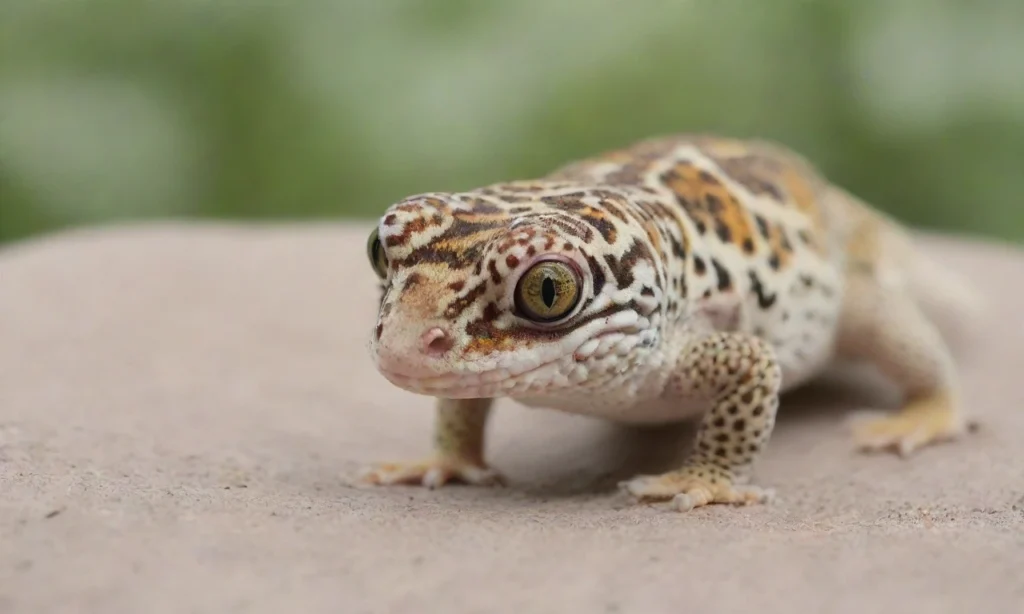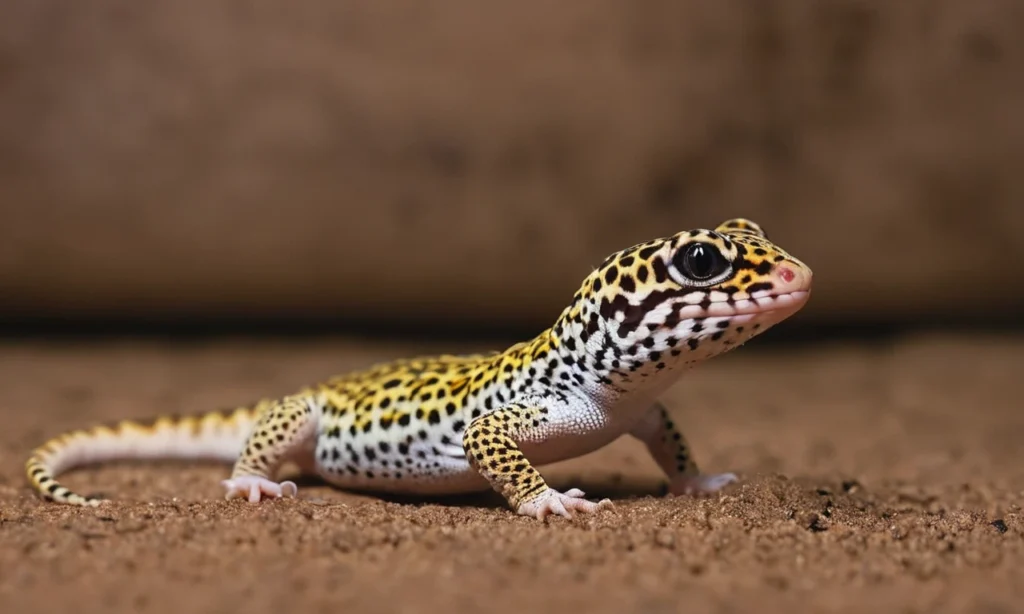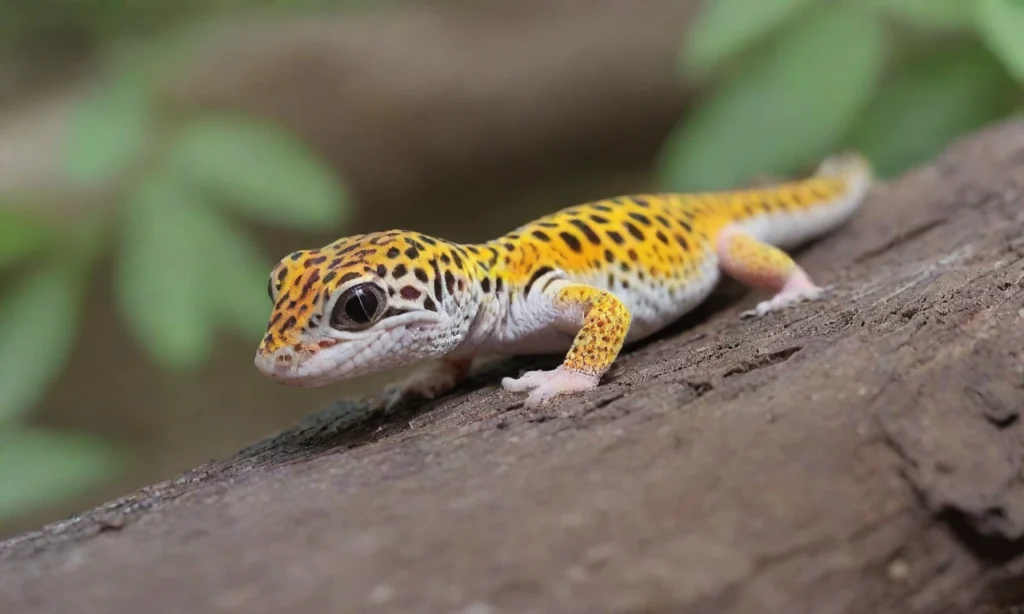Leopard geckos can easily live for 15-20 years, but the oldest leopard gecko have pushed the limits even further! What’s their secret to longevity? We’ll uncover the care, environment, and even a bit of luck that goes into a long gecko life. Get ready to learn how to give your gecko their best chance at a record-breaking lifespan.

Signs of a Healthy and Aging Leopard Gecko
Understanding what constitutes “normal” for your leopard gecko is crucial for ensuring their longevity and well-being. Let’s delve into the telltale signs of a healthy gecko and the subtle changes you might observe as your scaly companion ages.
Healthy Leopard Gecko Checklist
Bright, Alert Eyes
Your gecko’s eyes should be clear, bright, and free from any discharge, crustiness, or cloudiness. These are all potential indicators of underlying health issues.
Robust Body Condition
A plump, fleshy tail (their primary fat storage area) and a well-rounded body without any protruding bones signify good nutrition and overall health. Significant weight loss or skeletal appearance should be investigated further.
Healthy Appetite
Most adult leopard geckos maintain a consistent feeding schedule, typically eating every other day or every few days. Drastic, unexplained changes in appetite could warrant a consultation with a reptile specialist.
Activity and Responsiveness
While leopard geckos are not known for their boundless energy, they should still display alertness and responsiveness to their environment. Extended periods of lethargy or unresponsiveness might suggest an underlying health concern.
Aging Gracefully- What to Expect
Much like humans, leopard geckos naturally experience some slowing down as they age. Here are some common changes you might observe in the oldest leopard geckos:
Subtle Color Fading
Over time, your gecko’s vibrant colors may fade slightly, and their skin may take on a slightly thinner appearance. This is a normal part of the aging process.
Decreased Activity Levels
While your senior gecko might not chase crickets with the same youthful vigor, they should still exhibit regular movement and exploration. Extreme weakness or prolonged lethargy necessitates a checkup with a qualified reptile veterinarian.
Potential for Age-Related Conditions
As leopard geckos age, they become more susceptible to conditions like arthritis, metabolic bone disease, and other age-related health issues. Regular veterinary checkups are essential for early detection and management of such problems.
Important Note
Any sudden or drastic change in your gecko’s behavior, regardless of age, should always be promptly evaluated by an experienced reptile veterinarian. Ignoring significant shifts in appetite, activity levels, or the appearance of discharges could be detrimental to your pet’s health. [Source: VCA Animal Hospitals]

World’s Oldest Leopard Geckos
Now for the fun part! Let’s meet some of the longest-living leopard geckos and learn from their record-breaking lives. While not every gecko will reach these incredible ages, these stories offer valuable insights for maximizing your own gecko’s lifespan.
Documented Record Holders
Sadly, not every long-lived gecko has their age officially documented. However, reputable sources like the Guinness World Records recognize a few standouts. One notable example was a leopard gecko living in captivity who reached the astonishing age of 40 years! [Source: Facebook Post from ReptiFiles.com ].
Potential for Longer Life
Many reptile experts believe that with optimal care, leopard geckos could potentially live even longer. Proper husbandry, stress reduction, and veterinary checkups all contribute to creating the best possible environment for longevity.
Secrets from the Owners
While genetics play a role, the care provided by these geckos’ owners is key. Common themes include:
Spacious, Stress-Free Enclosures
Providing ample space, hides, and appropriate temperatures helps reduce stress.
Nutritious Diet
Offering a variety of gut-loaded insects and appropriate supplementation prevents deficiencies.
Attention to Changes
Diligent owners notice subtle shifts in their gecko’s health, allowing for early intervention.
Important Note
Every gecko is an individual. While these record-holders are inspiring, don’t be discouraged if your pet doesn’t reach the same age. The goal is to provide the best possible life for the time they have.

Your Gecko’s Best Life
You’ve learned all about the factors that contribute to those record-breaking gecko lifespans. Now, let’s dive deeper into how you can apply these principles to enhance your own leopard gecko’s life!
Optimal Care is Key- Provide your gecko with these essentials
Ideal Environment
Tank Size: A minimum of a 20-gallon long tank offers ample space for your gecko to explore and regulate its body temperature.
Temperatures: Maintain a warm side around 88-92°F (31-33°C) and a cool side around 75-80°F (24-27°C).
Humidity: Keep humidity around 30-40%, with a humid hide offering a higher humidity zone for shedding.
Substrate: Opt for reptile-safe options like paper towels (easy cleaning), reptile carpet, or specialized bio-active substrates.
Hides and Enrichment: Provide multiple hides, including a humid hide, as well as branches or rocks for climbing and basking.
Balanced Diet
Feeder Insects: Offer a variety like crickets, dubia roaches, and meal-worms, all gut-loaded for maximum nutrition.
Supplementation: Dust insects with calcium powder with D3 a few times a week and a multivitamin once a week. Consult your reptile vet for the best recommendations.
Stress Management
Minimize Disturbances: Place their enclosure in a quiet area of your home with limited foot traffic.
Respectful Handling: Handle your gecko gently and infrequently, especially when they are new or shedding.
Routine and Consistency: Avoid sudden major changes to their environment or feeding schedule.
Regular Vet Visits
Schedule yearly checkups with a qualified reptile veterinarian to catch potential health issues early on.

Enjoy the Journey, Not Just the Destination
A long lifespan is wonderful, but focus on creating a rich and stimulating life for your gecko,
Enrichment: Rotate items in their enclosure, offer supervised exploration time outside the tank, and try puzzle feeders for mental stimulation.
Bonding: Handle your gecko gently when appropriate, and simply enjoy observing their unique personality and behaviors.
Responsible Ownership
Leopard geckos can live for 20+ years. Be prepared for this long-term commitment before bringing one home. Always prioritize ethical breeders or consider adopting a gecko in need of a loving home.
Conclusion
The quest for the “oldest leopard gecko” is an inspiring reminder of the incredible lifespan these reptiles can achieve with optimal care. By understanding their needs, providing a fulfilling environment, and cherishing every moment, you set the stage for your leopard gecko to thrive for many wonderful years to come.
